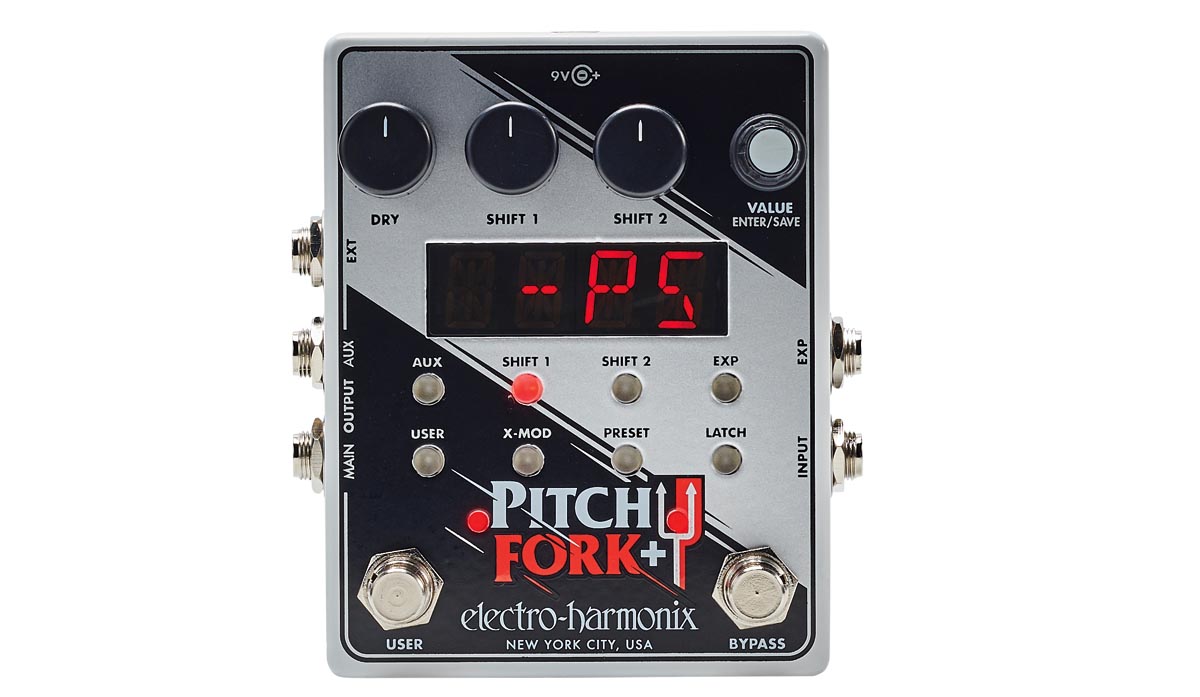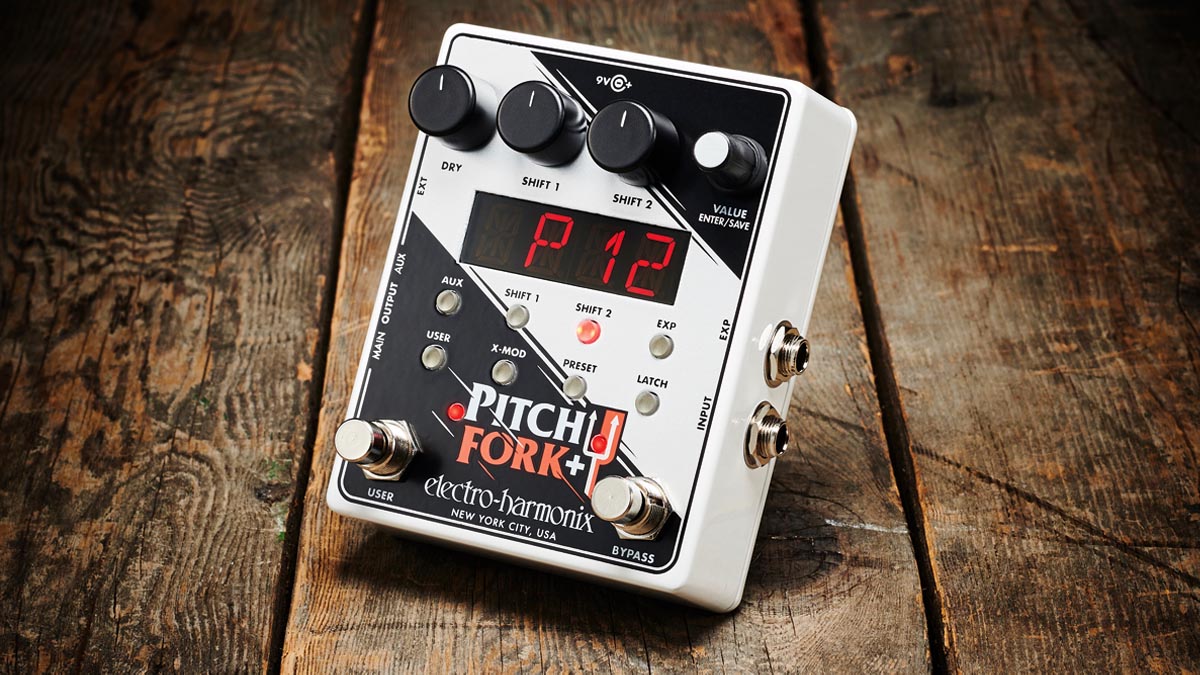Guitar World Verdict
A diminutive pitch-shifting powerhouse with a tasty combination of features to suit many needs.
Pros
- +
Two pitch shifters.
- +
Solid tracking.
- +
Wide frequency range.
- +
Practical footswitching options.
- +
Expression pedal capability.
Cons
- -
At this price, it would be churlish to complain about the usual warbly artefacts on extreme shifts.
You can trust Guitar World
The Pitch Fork+ provides two identical but independent pitch-shifting engines in a single pedal, both offering pitch up or down over a +/- three octave range and detuning of +/- 99 cents. There are separate volume knobs for each pitch shifter and for the dry sound, so there are plenty of options for totally pitch-shifted sounds or blends.
Besides the main output you’ll also find an AUX output that has various signal routing options, including stereo pitch shifting and keeping dry and effected sounds separate, while a second (User) footswitch can be assigned to different functions such as toggling channels on and off, selecting presets, crossfades and more. Should you want more switching capability, there’s a connection for a triple footswitcher.
There is a lot of creative sonic potential available from this pedal and plenty of places to store your creativity in its 100 presets; the 10 presets that have been programmed at the factory offer a good overview.

The mildest effect in the pedal is detuning – just a few cents each side can give you some useful alternatives to using a chorus pedal or similar. Tracking and tuning stability are good, so it’s possible to turn off the dry sound and use an octave down, turning your guitar into a workable bass.
You could also conjure up a baritone guitar or other dropped tunings, or turn the pitch up for an instant capo effect, albeit with altered tonality, especially noticeable as a metallic timbre on the pitched up settings. With dry sound back in play you can dial in a faux 12-string sound, and even opt for an 18-string!
There are, of course, loads of exquisitely beautiful harmonies on tap, as well as totally discordant stuff for the noiseniks who’ll be sure to embrace the X-Mod mode, which offers cross modulation for creating ring mod and frequency modulation.
The bypass footswitch can be set for latching or momentary action where it can be used for glissando effects if desired. But if you really want to get into the performance aspect then you can plug in an expression pedal for instant octave rises and other Whammy-style action.
All the latest guitar news, interviews, lessons, reviews, deals and more, direct to your inbox!
Specifications
- PRICE: $213 / £199
- ORIGIN: USA
- TYPE: Pitch-shift pedal
- FEATURES: True bypass, 2x pitch-shift engines with a +/-3 octave range
- CONTROLS: Dry, Shift 1, Shift 2, Value, 8x buttons (Aux, Shift 1, Shift 2, Exp, User, X-Mod, Preset, Latch), User footswitch, Bypass footswitch
- CONNECTIONS: Standard input, standard outputs (main, Aux) Ext, Exp
- POWER: Supplied 9V DC 200mA adaptor – pedal requires 120mA
- DIMENSIONS: 104 (w) x 119 (d) x 55mm (h)
- CONTACT: Electro-Harmonix
Trevor Curwen has played guitar for several decades – he's also mimed it on the UK's Top of the Pops. Much of his working life, though, has been spent behind the mixing desk, during which time he has built up a solid collection of the guitars, amps and pedals needed to cover just about any studio session. He writes pedal reviews for Guitarist and has contributed to Total Guitar, MusicRadar and Future Music among others.


